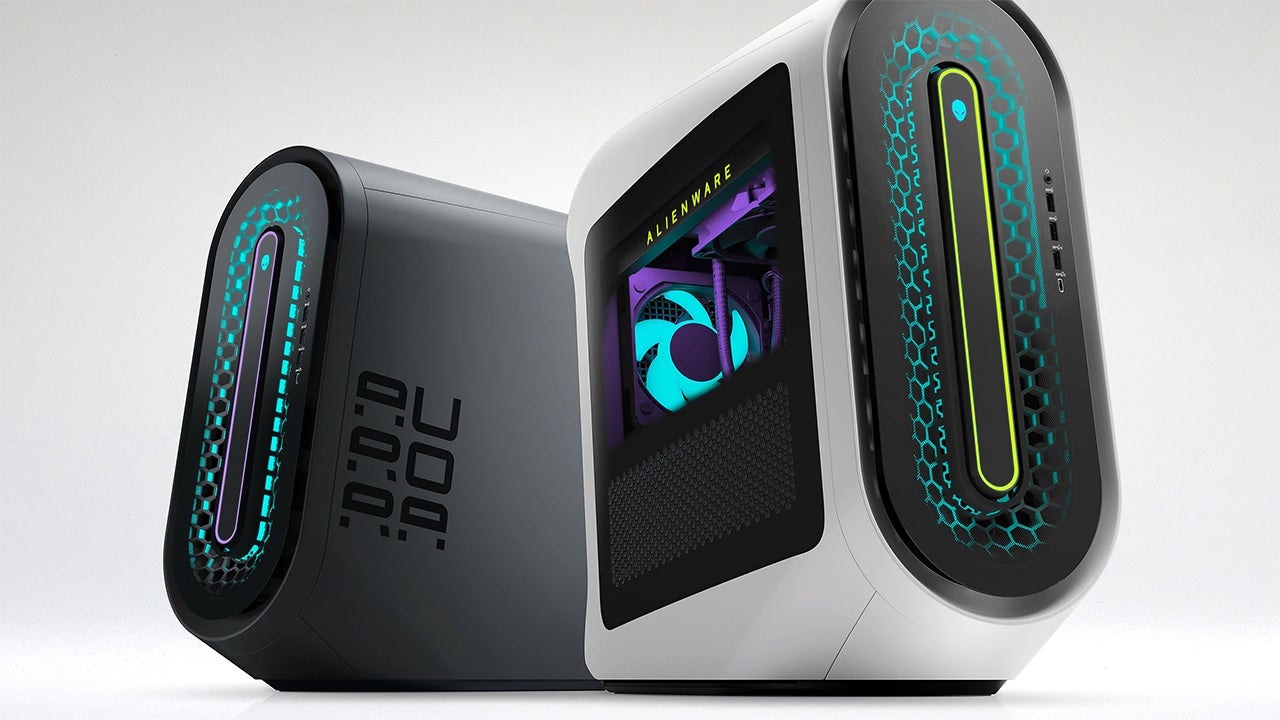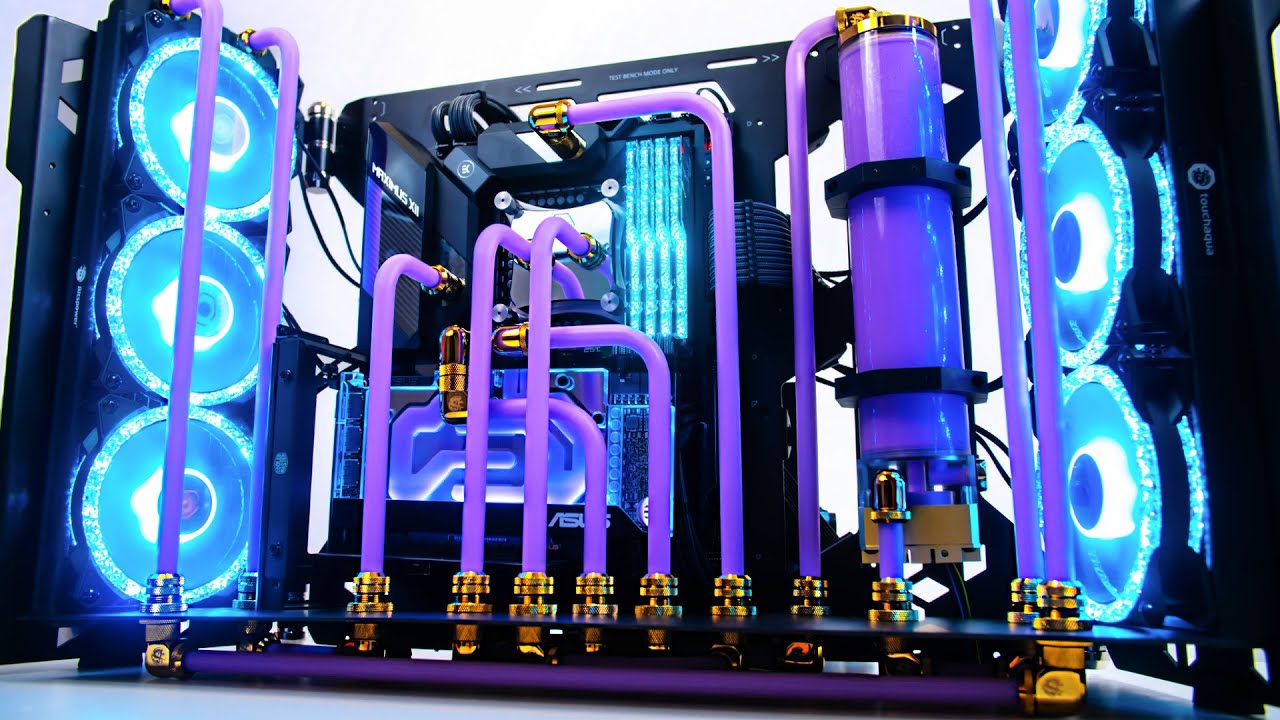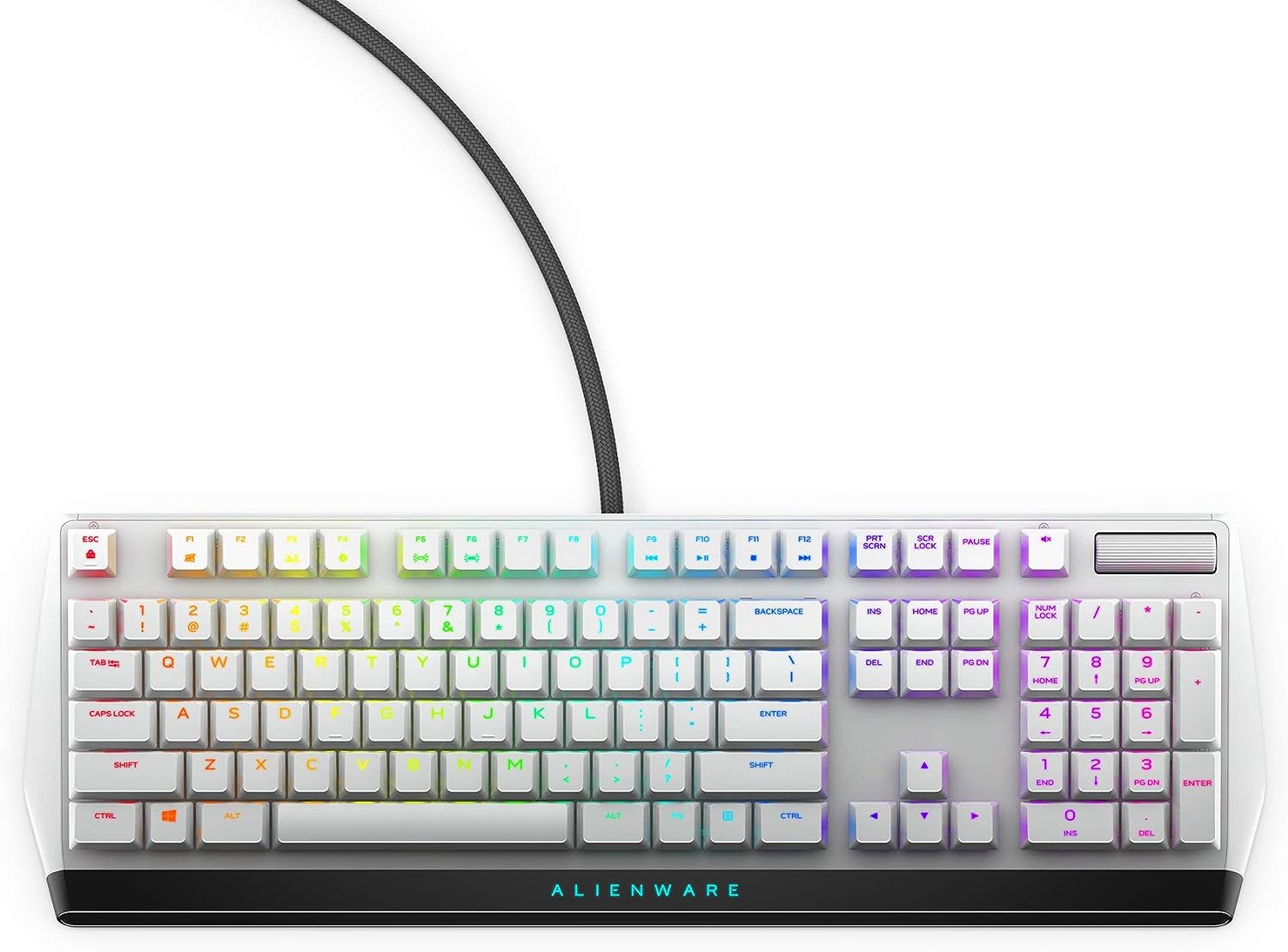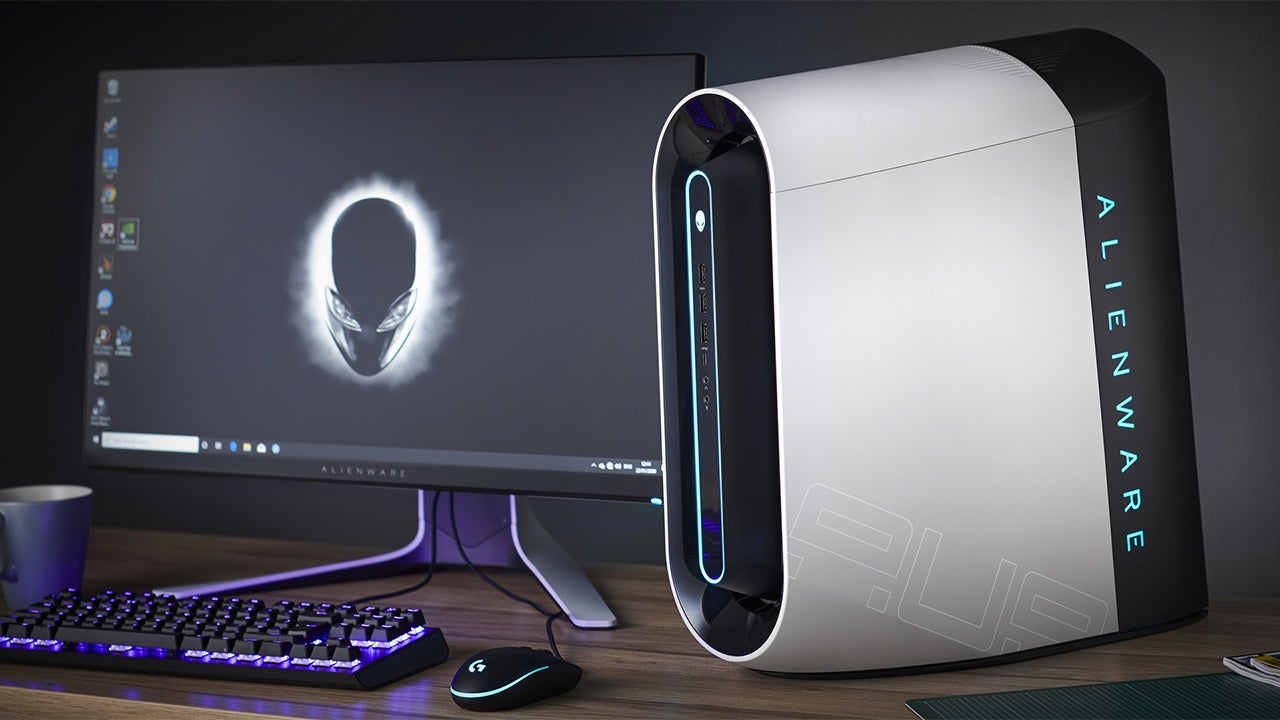Introduction
Welcome to the world of gaming with the Alienware Aurora R1, a powerhouse of a gaming PC designed to deliver epic gaming experiences. As a proud owner of this cutting-edge machine, it is essential to have a good understanding of its hardware components, including the power supply unit (PSU). The PSU is responsible for providing the necessary power to all the internal components of your Alienware Aurora R1, ensuring smooth and uninterrupted gameplay.
In the realm of gaming, power is king, and knowing the wattage of your PSU is crucial. The wattage indicates the amount of power the PSU can deliver to your computer system, and it directly affects the performance and stability of your machine. A PSU with inadequate wattage may result in system crashes, instability, and even hardware damage. On the other hand, a PSU with excessive wattage can lead to inefficient energy consumption and unnecessary costs.
So, whether you are planning to upgrade your components, overclock your CPU, or simply want to ensure that your power supply is sufficient for your gaming needs, it is important to check the wattage of your PSU. In this guide, we will explore different methods to help you check the PSU wattage on your Alienware Aurora R1.
Why is it important to check PSU wattage on Alienware Aurora R1?
Understanding the importance of checking the PSU wattage on your Alienware Aurora R1 is crucial for maintaining optimal performance and ensuring the longevity of your gaming rig. Here are a few key reasons why you should pay attention to your PSU wattage:
- Compatibility with Hardware Upgrades: Upgrading your gaming PC with more powerful components such as a higher-end graphics card or additional storage drives can increase power requirements. By knowing the wattage of your PSU, you can determine if it can handle the increased power demand or if an upgrade is necessary.
- Preventing System Instability: A PSU with insufficient wattage can cause your system to become unstable. This instability may manifest in the form of random crashes, unexpected reboots, or shutdowns during intensive gaming sessions. Checking the wattage ensures that your PSU can handle the power needs of your system, preventing these frustrating issues.
- Protecting Hardware Components: Insufficient power supply to your components can lead to underperformance or even damage. Inadequate wattage can result in insufficient voltage delivery, causing components like your CPU or graphics card to underperform or become unstable. Consistently feeding your components with insufficient power can reduce their lifespan and potentially lead to costly replacements.
- Efficient Energy Consumption: Running a PSU that exceeds your system’s power requirements not only wastes energy but also increases your electricity bill. By checking the wattage, you can ensure that you have a PSU that matches your system’s power needs, promoting energy efficiency and reducing unnecessary costs.
These reasons highlight the importance of determining the PSU wattage on your Alienware Aurora R1. It allows you to make informed decisions when upgrading components, ensures system stability, protects your hardware investments, and promotes efficient energy consumption. With this knowledge, you can optimize your gaming experience and maximize the lifespan of your powerful gaming rig.
Method 1: Checking PSU Wattage through the Alienware Command Center
The Alienware Command Center is a powerful software suite that comes pre-installed on your Alienware Aurora R1. It provides a range of control and customization options for your system, including monitoring your PSU wattage. Here’s how you can check the PSU wattage using the Alienware Command Center:
- Open the Alienware Command Center software on your computer. You can usually find it in the Start menu or by searching for “Alienware Command Center.”
- Navigate to the “Monitoring” or “Performance” tab within the Command Center.
- Look for the section that displays the current status or statistics of your system. Here, you should be able to find the PSU wattage information.
- Take note of the displayed wattage value, which indicates the maximum power your PSU can supply to your system.
It’s important to note that the availability and location of the PSU wattage information may vary depending on the version of the Alienware Command Center software installed on your system. If you cannot find the wattage information through this method, don’t worry. There are alternative methods to check the PSU wattage on your Alienware Aurora R1.
Checking the PSU wattage through the Alienware Command Center is a convenient and straightforward way to determine the power supply capacity of your system. It allows you to quickly access the information you need without the need for external tools or complex procedures. By knowing the PSU wattage, you can ensure that your gaming PC is receiving adequate power to deliver optimal performance and stability during your gaming sessions.
Method 2: Checking PSU Wattage through the BIOS
If you’re unable to find the PSU wattage information through the Alienware Command Center or prefer a different method, you can check the PSU wattage through the BIOS (Basic Input/Output System) of your Alienware Aurora R1. Here’s how you can do it:
- Restart your computer and press the specified key to enter the BIOS. Common keys to access the BIOS include Del, F2, or F12. The specific key can vary depending on your motherboard manufacturer.
- Navigate through the BIOS using the arrow keys or the specified navigation keys until you find the section that displays hardware information.
- Look for the subsection that shows power-related information or voltage readings. Here, you should be able to find the PSU wattage.
- Take note of the displayed wattage value, which represents the maximum power your PSU can deliver to your system.
It’s important to note that the layout and options available in the BIOS can differ between computer models and motherboard brands. If you’re having trouble finding the PSU wattage information, consult your computer or motherboard manual for specific instructions.
Checking the PSU wattage through the BIOS provides a reliable and direct method to access the crucial information about your power supply’s capacity. While it might require a bit more technical knowledge and navigation through the BIOS interface, it offers a robust way to verify your PSU wattage and ensure that your gaming PC is receiving the necessary power for optimal performance.
Method 3: Checking PSU Wattage through a Power Supply Calculator
If you’re unsure about the PSU wattage of your Alienware Aurora R1 and want a more accurate estimation, you can use a power supply calculator. These online tools help you calculate the approximate wattage requirements based on the components you have installed or plan to upgrade. Here’s how you can check the PSU wattage through a power supply calculator:
- Open your preferred web browser and search for “power supply calculator.”
- Select a reputable power supply calculator website from the search results.
- Follow the instructions on the calculator website to input the relevant information about your system.
- Enter the details of your CPU, graphics card, RAM, storage devices, and other components you have or plan to use.
- After entering all the necessary information, hit the calculate button or similar option to generate the estimated wattage requirement for your system.
- Take note of the recommended wattage value provided by the power supply calculator.
Power supply calculators take into account various factors such as the power consumption of individual components, their usage patterns, and any planned overclocking. They provide a more accurate estimation of the PSU wattage needed to run your system effectively.
It’s important to keep in mind that power supply calculators provide an estimate, and it’s generally a good practice to have some extra headroom when selecting a PSU. Therefore, it’s recommended to choose a power supply with a slightly higher wattage than the calculated requirement to ensure stability and accommodate any future upgrades.
Using a power supply calculator gives you a comprehensive understanding of your PSU wattage requirements based on your specific components and usage scenarios. It helps you make informed decisions when selecting a power supply for your Alienware Aurora R1, ensuring that your gaming PC has the necessary power for smooth and reliable performance.
Conclusion
Checking the PSU wattage on your Alienware Aurora R1 is an essential step in optimizing your gaming experience and ensuring the long-term health of your system. By knowing the wattage capacity of your power supply, you can make informed decisions when upgrading components, prevent system instability, protect your hardware, and promote efficient energy consumption.
In this guide, we explored three different methods to check the PSU wattage on your Alienware Aurora R1. You can utilize the Alienware Command Center, BIOS, or power supply calculators to determine the wattage of your PSU. Each method offers its advantages, providing you with various avenues to access the crucial information you need to make informed decisions for your gaming rig.
Remember that when checking PSU wattage, it’s advisable to have some extra headroom to accommodate future upgrades and ensure stable performance. Additionally, always refer to the specific instructions and documentation for your computer model or motherboard if you encounter any difficulties while accessing the PSU wattage information.
By understanding and monitoring your PSU wattage, you can ensure that your Alienware Aurora R1 is running at its optimal performance level. With the right amount of power, your gaming sessions will be smooth and uninterrupted, allowing you to fully immerse yourself in the world of gaming without any power-related limitations.

























